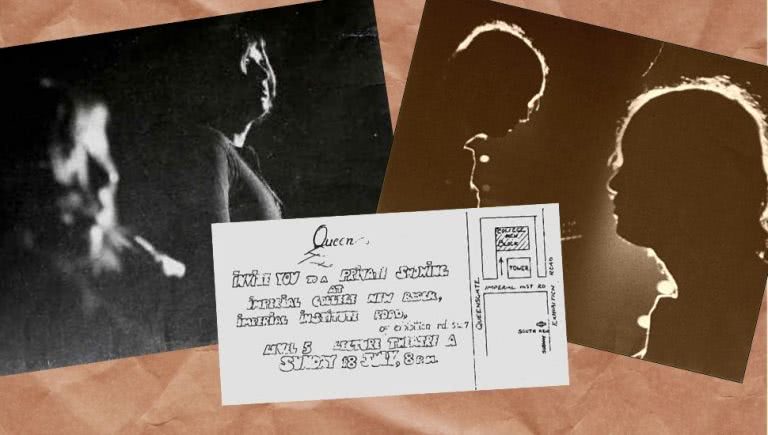On this day 50 years ago, legendary group Queen rocked out for one of their first-ever “proper gigs”, which took place at Imperial College in the Union Hall on July 18, 1970.
Queen had actually been formed following Brian May – who was a student at Imperial – placing an advert on the noticeboard in the Union looking for a ‘”Mitch Mitchell/Ginger Baker type” drummer’. After Roger Taylor responded, it soon lead to Queen performing one of their first gigs in the Union Concert Hall.
Dr Brian May, who went on to gain his doctorate in Astronomy 36 years after starting his thesis, later reflected on this show, saying: “The first proper gig we did was at Imperial College in the Union Hall. I remember it very distinctly because I’d seen all sorts of people playing in there.”
“I’d been part of the Entertainment Committee [as a student] and we booked a group every Saturday night in those days. People like Spooky Tooth and Steamhammer! “We booked Jimi Hendrix too.”
May continued, “So for us it was a dream come true to actually play on that stage. It used to get packed in there, so it was a major stepping stone for us.”
Roger Taylor added: “Imperial College was effectively our positional and spiritual base and so means a lot to Queen. Many good memories, without it… who knows?”
The show was performed in front of around fifty people, during which the band announced that Tim Staffell had left the band and that Freddie Mercury – who then known as Freddie Bulsara – was their new singer. The flamboyant frontman would later change his surname to Mercury after reading up on Roman mythology, with the name meaning “messenger of the gods.”
Love Classic Rock?
Get the latest Classic Rock news, features, updates and giveaways straight to your inbox Learn more
Recently, the Performing Rights Society honoured Queen with a plaque which can be seen by the entrance to Beit Quadrangle to celebrate the origin of one of their earliest performances.
Check out ‘Killer Queen’ by Queen:





































